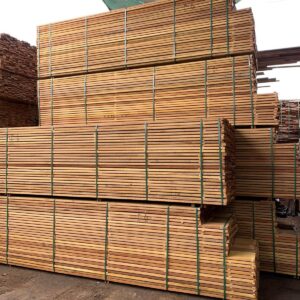lumber 2x6 for sale
Lumber 2×6 for Sale: A Comprehensive Buyer’s Guide
lumber 2×6 for sale, When it comes to construction, woodworking, or DIY projects, 2×6 lumber is one of the most versatile and commonly used materials. Whether you’re building a deck, framing a wall, or crafting furniture, knowing where to find high-quality 2×6 lumber for sale is essential.
In this guide, we’ll cover everything you need to know about purchasing 2×6 lumber, including types, pricing, where to buy, and FAQs to help you make an informed decision.
What Is 2×6 Lumber?
A 2×6 refers to a piece of lumber that is nominally 2 inches thick and 6 inches wide. However, due to drying and planing, the actual dimensions are typically 1.5 x 5.5 inches.
Common Uses of 2×6 Lumber
- Framing walls (especially in load-bearing applications)
- Decking and joists (provides better support than 2x4s)
- Flooring and roof rafters
- Outdoor projects (fences, pergolas, benches)
- DIY furniture and shelving
Types of 2×6 Lumber Available for Sale
When shopping for 2×6 lumber, you’ll encounter different wood species and grades. Here are the most common options:
1. Softwood Lumber (Most Common for Construction)
- SPF (Spruce-Pine-Fir) – Affordable, good for framing.
- Southern Yellow Pine (SYP) – Strong, used for decks and structural projects.
- Douglas Fir – Durable, often used in heavy construction.
- Cedar & Redwood – Naturally resistant to rot, ideal for outdoor use.
2. Hardwood Lumber (For Finer Woodworking)
- Oak, Maple, or Walnut – Used for furniture and high-end projects.
3. Pressure-Treated Lumber
- Treated with chemicals to resist rot, insects, and moisture.
- Ideal for outdoor structures like decks and fences.
4. Engineered Lumber (LVL, PSL, or I-Joists)
- Made from composite materials for extra strength.
- Used in modern construction for beams and joists.
Where to Buy 2×6 Lumber for Sale
You can purchase 2×6 lumber from various sources, including:
1. Local Lumber Yards & Home Improvement Stores
- Home Depot, Lowe’s, Menards – Offer a wide selection of 2×6 lumber in different grades.
- Specialty lumber suppliers – Better for high-quality or rare wood types.
2. Online Retailers
- Amazon, eBay – Limited selection but convenient for small orders.
- BuildDirect, Woodworkers Source – Good for bulk or specialty lumber.
3. Reclaimed & Salvage Lumber Suppliers
- Eco-friendly option for unique, aged wood.
4. Direct from Sawmills
- Cheaper for bulk purchases but may require milling.
Factors Affecting the Price of 2×6 Lumber
The cost of 2×6 lumber varies based on:
- Wood species (Pine is cheaper than cedar or redwood).
- Grade (Select vs. Construction grade).
- Treatment (Pressure-treated costs more).
- Market demand (Prices fluctuate with supply chain conditions).
Average Price Range (2024 Estimates)
| Type of 2×6 Lumber | Price per 8-ft Board |
|---|---|
| SPF (Untreated) | 5–8 |
| Pressure-Treated Pine | 8–12 |
| Cedar | 10–20 |
| Douglas Fir | 7–15 |
| Redwood | 15–30 |
(Prices may vary by region and supplier.)
FAQs About Buying 2×6 Lumber
1. What’s the actual size of a 2×6 lumber?
- Nominal size: 2×6 inches
- Actual size: 1.5 x 5.5 inches (due to drying and planing).
2. How much weight can a 2×6 support?
- Depends on span, wood type, and load.
- A Douglas Fir 2×6 can support about 50 lbs per square foot over a 10-foot span.
3. Should I use pressure-treated 2×6 for outdoor projects?
- Yes, if exposed to moisture or ground contact.
- No for indoor framing (untreated is sufficient).
4. What’s the best 2×6 lumber for deck joists?
- Pressure-treated Southern Yellow Pine or Cedar for durability.
5. Can I use 2×6 instead of 2×4 for wall framing?
- Yes, 2×6 walls provide better insulation space and strength.
6. How do I prevent warping in 2×6 lumber?
- Store flat in a dry area.
- Use kiln-dried lumber for stability.
7. Where can I find cheap 2×6 lumber?
- Check local sawmills, bulk suppliers, or seasonal sales at Home Depot/Lowe’s.
8. Is engineered lumber better than traditional 2×6?
- For long spans and heavy loads, LVL or I-joists are stronger but more expensive.
Showing the single result
